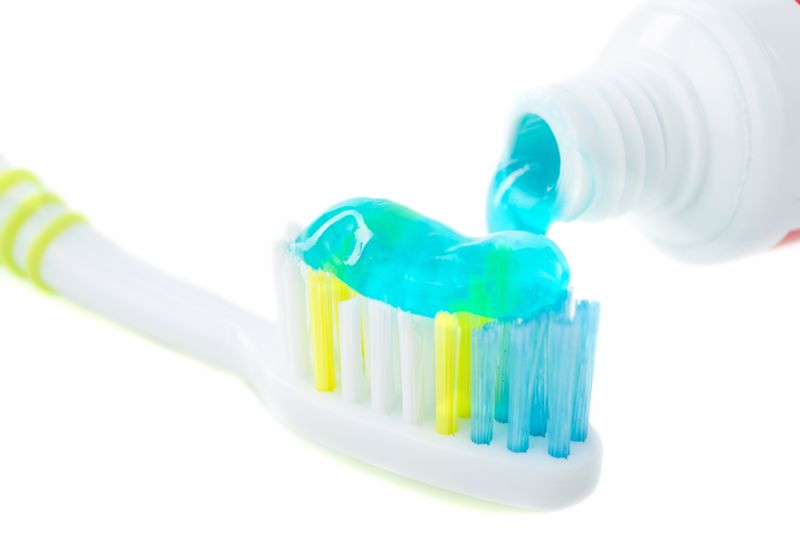On a hot summer’s day, nothing cools you down quite like a tasty frozen dessert or a chilled beverage. Whether it’s a fruity ice block that you’re never too old for or a tall glass of water with cubed or shaved ice, the tastes of summer are a great way to cool down when the temperatures go up.
But if your teeth are on the sensitive side, you can attest to the fact that the tastes of summer can sometimes make you feel like your mouth is on fire, as cold temperatures can lead to searing pain, even though it typically goes away fairly quickly.
While you may know that having sensitive teeth is pretty common, you may not know the why part. In other words, what causes tooth sensitivity in the first place? Better yet, how can tooth sensitivity be managed so those painful episodes are few and far between? Here, we’ll explore the what, why and how of tooth sensitivity.
What is tooth sensitivity in layman’s terms?
Tooth sensitivity is a manifestation of oral health symptoms in response to certain stimuli, such as extreme temperatures or certain chemicals, which may be in foods, drinks, medications or certain oral care treatments. Formally known as dentin hypersensitivity, tooth sensitivity usually manifests itself when you’re eating a certain food (like ice cream or frozen yogurt) or drinking a very hot or cold beverage (like coffee or tea).
Dentin hypersensitivity is extremely common, affecting millions of people worldwide. Research from the University of Queensland suggests it may affect nearly three-quarters of Australia’s population. There is no known data on how pervasive tooth sensitivity is in New Zealand.
Why does tooth sensitivity occur?
Occasionally tooth sensitivity is an inherited trait; it’s a genetic characteristic that you just happen to be born with. For most people, however, tooth sensitivity is a symptom of an underlying oral health issue. For example, when one or several teeth are severely worn — perhaps due to excessive consumption of highly acidic foods or beverages — it can weaken the enamel, making the nerve endings that lie within the teeth more reactive to stimuli. Enamel is the hardest substance in the body, but it isn’t impenetrable, meaning it can wear down over time and trigger pain.
Tooth sensitivity can also be indicative of a problem that requires the assistance of a dentist. A classic example is a cavity, as localised pain (often from foods and beverages) is a common indicator of tooth decay. It’s important to consult with a dentist when tooth sensitivity is recurrent with one specific tooth so you can receive a plan of action to have the issue resolved.
Other potential causes for tooth sensitivity are fillings that fall out or wear out, brushing too aggressively, a tooth that’s fractured or chipped and severe gum disease. Also called periodontitis, which is the most serious form, gum disease is a receding of the gum line where the gums pull away from teeth. This can result in bone loss, potentially leading to the teeth falling out. Depending on the situation, teeth may need to be surgically extracted but they may also fall out on their own.
How is tooth sensitivity treated?
Just as there are a variety of reasons for why tooth sensitivity occurs, the same goes for treatment: It’s determined on a case-by-case basis. Here are a few options, some of which you can pursue on your own:
 Several kinds of toothpaste are designed for sensitive teeth.
Several kinds of toothpaste are designed for sensitive teeth.Desensitising toothpaste
Several oral care manufacturers and suppliers have sensitive teeth iterations of their normal products, using a formula that’s designed specifically for people with this issue. After using it for a number of days —or weeks — the toothpaste can help to mitigate some of the discomfort that people with sensitive teeth are all too familiar with. However, these products don’t work for everyone, so it may be wise to consult with your dentist and dental hygienist to see what they recommend.
Fluoride application
Fluoride is found in several toothpastes and brands of mouthrinse because of its strengthening properties, helping to build up bone structure as well as the hardness of tooth enamel. But how much fluoride is found in these products can vary considerably. Your dentist may recommend swapping out the oral care products you’re using for ones that have more fluoride or are simply higher quality. They may also have you use customised fluoride application trays that you can wear. The fluoride can help to maximise your tooth enamel’s resilience and minimise pain.
Root canal
The dental pulp is what lies within your teeth, at the core. If there is an infection, a root canal may be necessary to avoid further damage. Of course, no one enjoys getting a root canal, but the good news is that it’s a highly effective treatment that can dramatically reduce the discomfort associated with a sensitive tooth or teeth.
City Dentists can help you treat your sensitive teeth with the kind of customised care that you can trust. Contact us today to set up an appointment or to schedule a cleaning.
